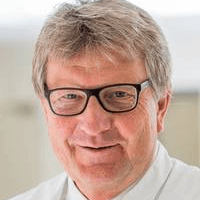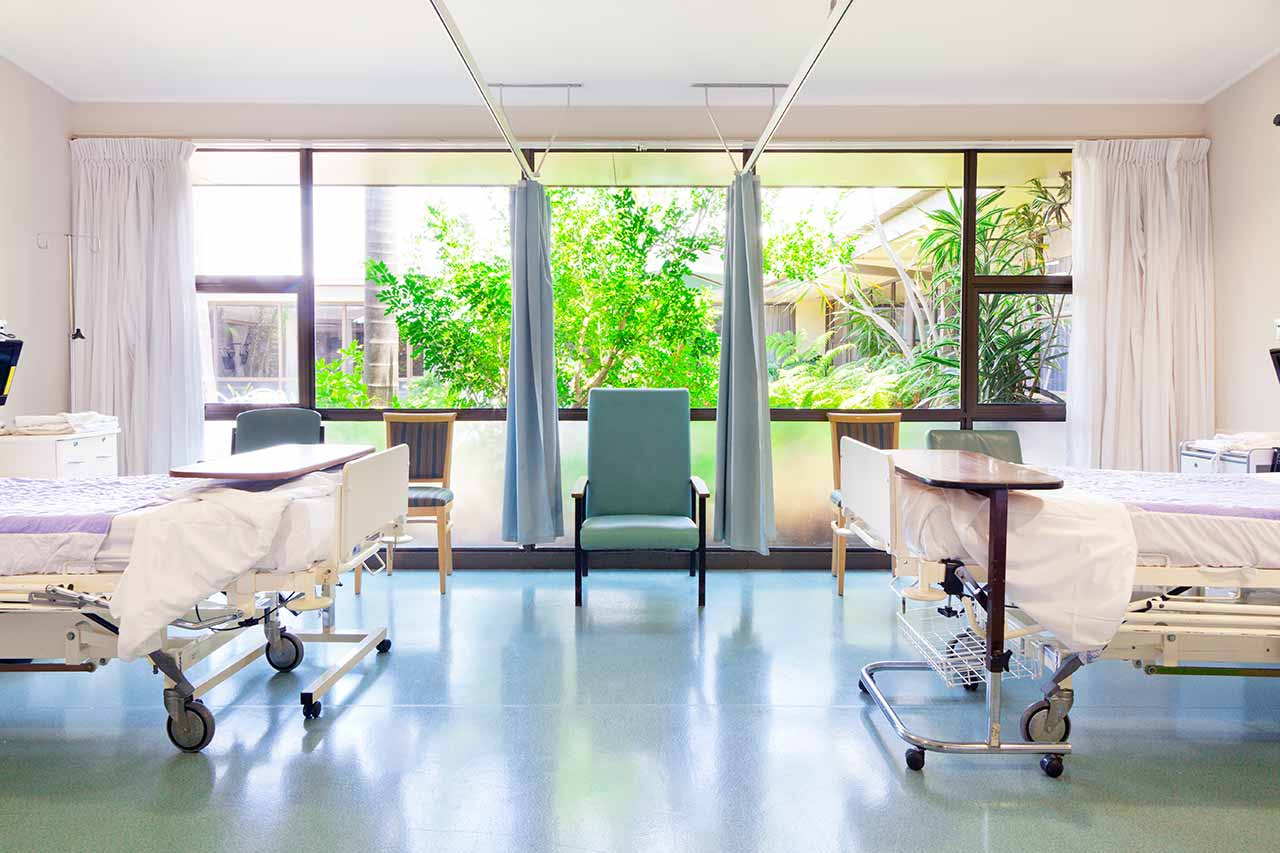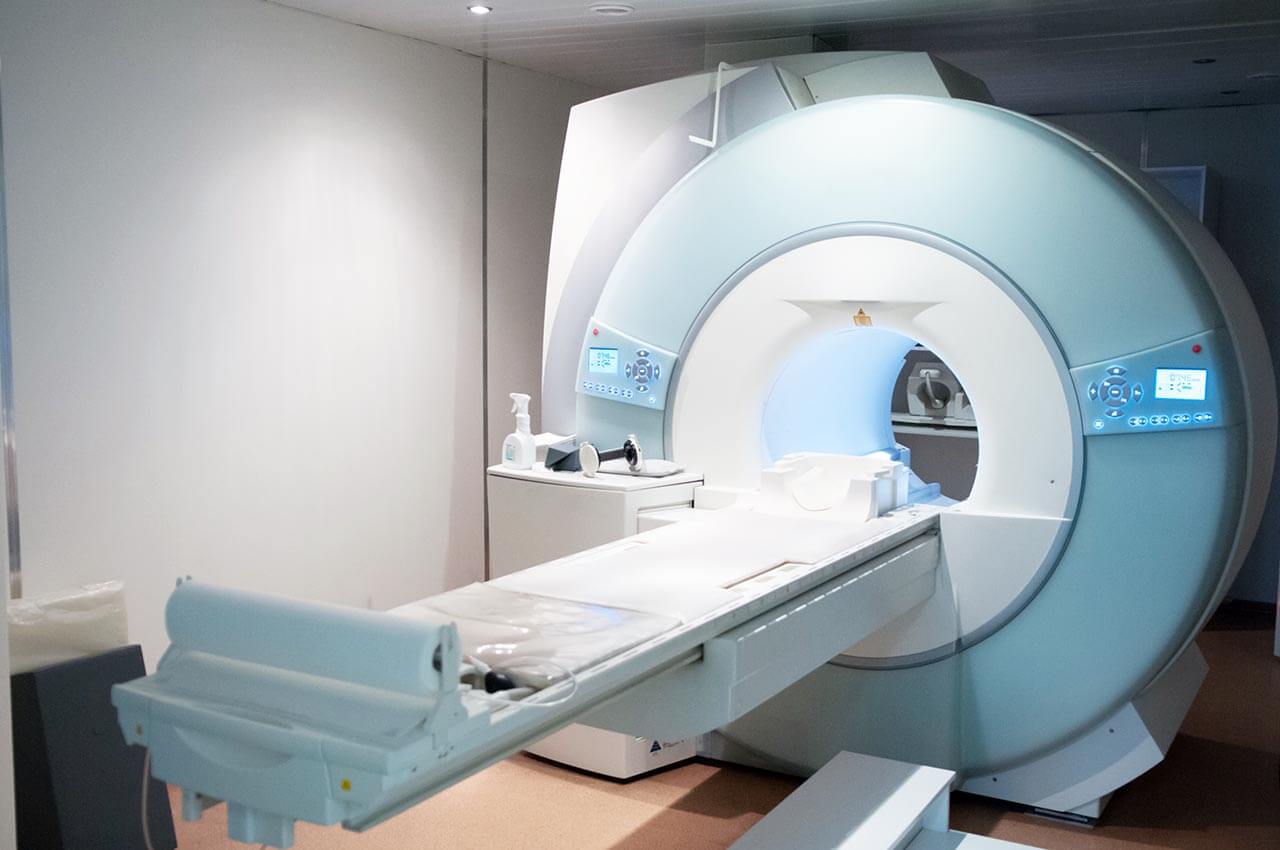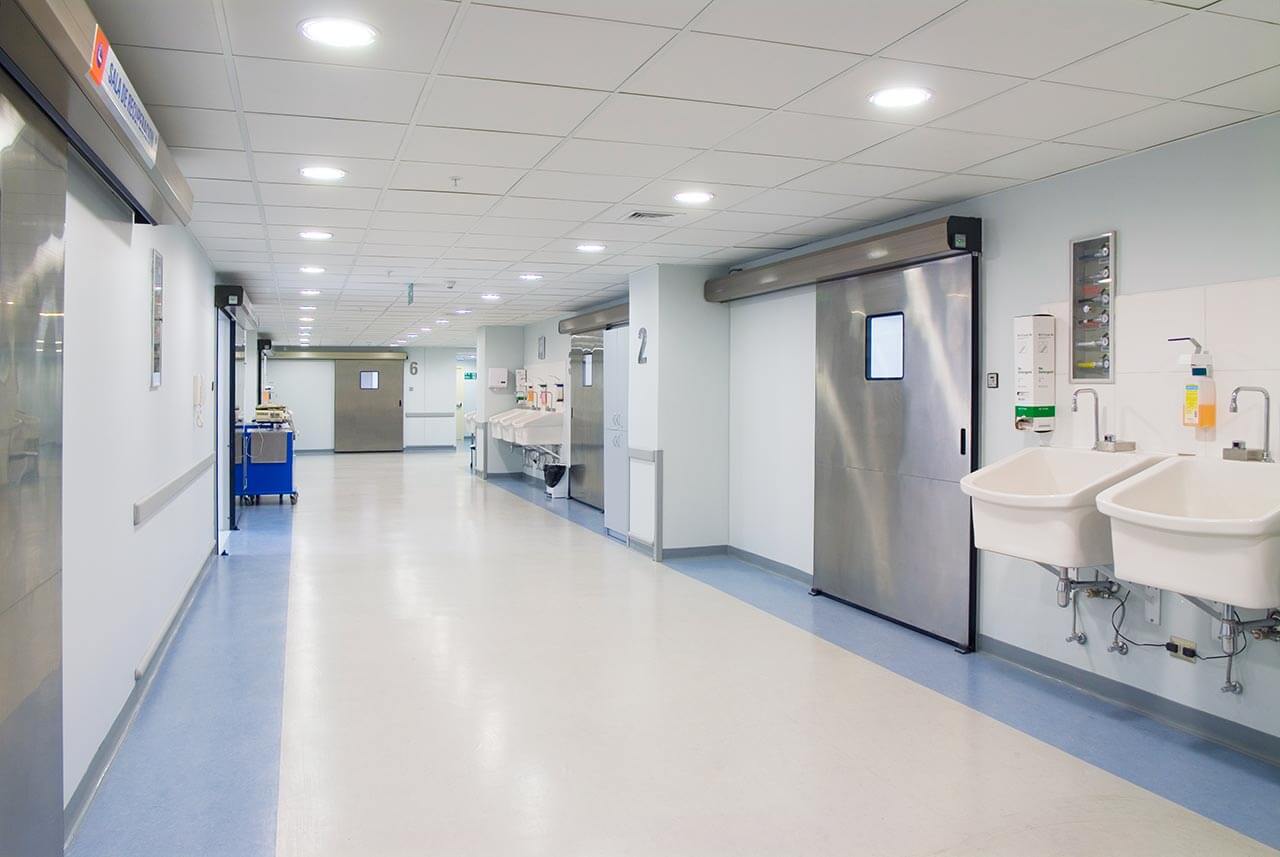
The program includes:
- Initial presentation in the clinic
- clinical history taking
- review of medical records
- physical examination
- laboratory tests:
- complete blood count
- biochemical analysis of blood
- mineral metabolism analysis (Na, K, Ca, Mg)
- lipid metabolism (HDL/LDL, cholesterol,
triglycerides Lip(a), homocysteine) - inflammation indicators (CRP, ESR)
- indicators blood coagulation
- blood gas analysis
- chest x-ray examination
- holter monitoring (24h)
- measurement of arterial blood pressure
- electrocardiogram (ECG)
- pulmonary function test
- echocardiography
- doppler echocardiography
- high-resolution computed tomography (HR-CT)/MRI (on indication 950/1200€)
- CT angiography (on indication 1350€)
- nursing services
- consultation of related specialists
- treatment by chief physician and all leading experts
- explanation of individual treatment plan
(the cost of medicines is not included)
Required documents
- Medical records
- Echocardiography (if available)
Service
You may also book:
 BookingHealth Price from:
BookingHealth Price from:
About the department
The Department of Cardiology and Angiology at the University Hospital Saarland Homburg offers all the options of modern medicine for the diagnostics and treatment of heart conditions and vascular diseases. The department's therapeutic options include conservative treatment with the use of modern drugs, interventional treatment within four high-tech cardiac catheterization laboratories, and effective intensive care. The department's cardiologists annually perform more than 5,000 cardiac catheterization procedures, which are a modern alternative to a traumatic operation with a thoracotomy. The most requested catheter-based interventions include TAVI and MitraClip for treating aortic and mitral valve defects, atrial appendage closure, pacemaker and defibrillator placement to treat heart arrhythmias, and catheter ablation. The department also performs urgent interventional procedures on the heart. Doctors specializing in angiology diagnose and treat patients suffering from occlusive peripheral arterial disease, deep vein thrombosis, varicose veins, and other pathologies. Patients are treated in collaboration with vascular surgeons and specialists in interventional radiology. The department also has 80 beds for hospital stays. The Head Physician of the department is Prof. Dr. med. Michael Böhm.
The primary focus of the department's clinical practice is cardiac catheterization. For this purpose, the medical facility is equipped with four advanced cardiac catheterization laboratories, which are located in close proximity to each other. The team of the department's cardiologists has vast experience in the treatment of coronary heart disease with the help of directed catheter atherectomy and the placement of drug-eluting and non-drug-eluting stents. Many patients undergo transcatheter aortic valve implantation (TAVI) and MitraClip procedures in the department. The TAVI technique is indicated for patients with aortic stenosis, and the MitraClip procedure is an effective treatment method for mitral insufficiency. Catheter-based interventions to close an atrial septal defect, a ventricular septal defect, a patent foramen ovale, and an atrial appendage are also quite in demand.
The exceptional competence of the department's doctors in the treatment of heart arrhythmias deserves special attention. The whole range of examinations is required to confirm the diagnosis of arrhythmia, including ECG Holter monitoring, 24-hour blood pressure monitoring, stress ECG, spiroergometry, a tilt table test, etc. If a patient has bradycardia (a slow heartbeat rate), it is often necessary to implant a pacemaker (in the case of failure of drug treatment), which is performed in the department using catheter-based techniques. Depending on the particular type of pacemaker, the duration of the intervention ranges from 45 minutes to 3 hours. Due to the use of catheter-based techniques, the risks to the patient's health during the intervention are practically zero. Modern pacemaker systems serve for at least 6 years. Every 6-12 months, a patient needs to undergo follow-up examinations so that a doctor can make sure that the pacemaker is working properly. Unlike pacemakers, defibrillators are implanted in patients with rapid heartbeats (tachycardia). Interventional procedures to implant defibrillators are performed under local anesthesia. The duration of the procedure is 1-2 hours. After the completion of treatment, patients should periodically visit a cardiologist to evaluate the performance of the implanted device.
Catheter ablation is successfully used in the department for tachyarrhythmias. The specialists offer two modern forms of this procedure: radiofrequency catheter ablation and cryoablation. The essence of both procedures is the destruction of pathological heart tissue that causes an accelerated heart rate. Catheter ablation is successfully used in the department to combat atrial fibrillation, atrial flutter, atrial tachycardia, atrioventricular nodal reentrant tachycardia, and ventricular tachycardia.
The department also provides top-class medical services for patients with various vascular diseases. Along with the Departments of Vascular Surgery and Interventional Radiology, the medical facility has the status of an interdisciplinary Center for Vascular Diseases, certified by the German Society of Vascular Surgery (DGG), the German Radiology Society (DRG), and the German Society for Angiology (DGA). The department's diagnostic rooms are equipped with the necessary devices for conducting color duplex sonography of the carotid arteries and blood vessels in the brain, blood vessels in the abdominal cavity, blood vessels in the kidneys, blood vessels in the upper and lower limbs, continuous wave Doppler of the veins of the upper and lower limbs with pressure measurement, arterial oscillography, occlusion plethysmography, capillary microscopy, and other tests. As for the treatment, the doctors of the medical facility most often prescribe conservative therapy with drugs only. If the pathology is not amenable to drug therapy, angiologists, along with interventional radiologists and vascular surgeons, consider the possibility of performing an endovascular procedure or classical surgery.
The department provides diagnostics and treatment of the following diseases:
- Cardiology
- Coronary heart disease
- Heart failure
- Heart valve disease
- Cardiomyopathy
- Acute coronary syndrome
- Myocardial infarction
- Heart arrhythmias
- Inflammatory heart disease: endocarditis, myocarditis, and pericarditis
- Arterial hypertension
- Angiology
- Occlusive peripheral arterial disease
- Abdominal aortic aneurysms
- Vasculitis (inflammation of the blood vessels)
- Functional circulatory disorders: Raynaud syndrome and acrocyanosis
- Diseases of the arteries supplying the brain
- Deep vein thrombosis and superficial vein phlebitis
- Varicose veins
- Other pathologies
The department's range of therapeutic services includes:
- Cardiology
- Drug therapy
- Interventional catheter-based procedures
- Directed catheter atherectomy
- Placement of drug-eluting and non-drug-eluting stents
- Percutaneous transluminal coronary angioplasty
- Transcatheter aortic valve implantation (TAVI)
- MitraClip procedure
- Catheter-based interventions for atrial septal defect closure
- Catheter-based interventions for ventricular septal defect closure
- Catheter-based interventions for patent foramen ovale closure
- Catheter-based interventions for atrial appendage closure
- Catheter-based implantation of pacemakers and defibrillators
- Cardiac resynchronization therapy
- Radiofrequency catheter ablation and cryoablation
- Catheter-based interventions for implanting artificial cardiac assist systems: ventricular assist devices (for the left or right ventricle) and biventricular assist devices
- Angiology
- Drug therapy
- Endovascular procedures and open surgery (in cooperation with vascular surgeons and interventional radiologists)
- Other treatment methods
Curriculum vitae
Higher Education and Professional Career
- 1977 - 1984 Study of Medicine at the Hannover Medical School.
- 1979 - 1981 Dissertation in the Center for Toxicology and Pharmacology at the Hannover Medical School.
- 1982 Internship at Tufts University in Boston, USA.
- 1984 - 1986 Research Assistant in the Department of General Pharmacology at the University Hospital Hamburg-Eppendorf.
- 1986 - 1993 Research Assistant in the Department of Therapy, Ludwig Maximilian University of Munich.
- 1993 - 2000 Senior Physician of the Department of Internal Medicine, University of Cologne.
- Since 1995 Professor of Internal Medicine and Cardiology, University of Cologne.
- Since 2000 C4 Professor for Internal Medicine with a focus on Cardiology and Angiology, as well as Head of the Department of Cardiology and Angiology at the University Hospital Saarland Homburg.
Research Focuses
- Heart failure.
- Atherosclerosis.
- Interventional procedures on the heart.
- Arterial hypertension.
Prizes, Awards, Distinctions and Honorary Memberships
- 2014 Honorary Member of the Hellenic Society of Cardiology.
- 2012 Federal Cross of Merit.
- 2012 Silver Honorary Medal from the European Society of Cardiology.
- Since 2012 Member of the German National Academy of Sciences Leopoldina.
- 2002 Franz Gross Scientific Prize from the German Hypertension League.
- 2000 Arthur Weber Prize from the German Society for Cardiology.
- 1997 E.K. Frey Prize from the German Society of Anaesthesiology and Intensive Care.
- 1996 Walter Clawiter Prize from the Heinrich Heine University Duesseldorf.
- 1995 Heisenberg Foundation Fellow, German Research Foundation (DFG).
- 1993 Rudolf Thauer Poster Award from the German Society of Cardiology.
- 1993 Gerhard Hess Program of the German Research Foundation.
- 1993 Albert Knoll Prize from the Saar-Palatinate Society for Internal Medicine.
- 1992 Fraenkel Prize from the German Research Foundation (DFG).
- 1992 Asta Medica Award.
- 1992 r Smith Kline Beecham Scientific Award for Clinical Research.
- 1989 Theodor Frerichs Prize from the German Society of Internal Medicine.
- 1989 Research award from the Federal Ministry for Family Affairs, Senior Citizens, Women and Youth.
Photo of the doctor: (c) Universitätsklinikum des Saarlandes
About hospital
The University Hospital Saarland Homburg is the largest hospital in the city of Homburg and the most important medical facility in the region. The hospital, which currently has 30 specialized departments and 20 institutes, was founded in 1947 and operates on the basis of Saarland University. The hospital plays a leading role in medical education, research, and medical care both in the state of Saarland and throughout Germany. With vast experience in serving foreign patients, the medical facility is also widely known in the international medical arena.
The pride of the hospital is state-of-the-art equipment that allows the doctors to perform high-precision comprehensive diagnostics and the most sparing treatment even if a patient has a severe pathology. Patients are offered innovative medicine based on the very latest scientific achievements. At the same time, the hospital offers many therapeutic methods that are used only in leading medical centers in Europe, including da Vinci robot-assisted surgery, CAR T-cell therapy, TAVI and MitraClip catheter-based procedures, innovative laser procedures, etc. Great importance is paid to ethical and social competence. The hospital is constantly improving the work of its medical personnel and infrastructure to provide medical services that meet the highest standards.
As a multidisciplinary medical complex, the hospital offers highly effective treatment of the full range of common diseases as well as rare and severe pathologies. The efforts of the medical staff, which includes over 600 doctors and 2,000 nurses, are focused on the patient and their unique needs and desires. The doctors always devote enough time to personal communication with their patients, provide them with moral support, and are sympathetic to every life situation.
Photo: (с) depositphotos
Accommodation in hospital
Patients rooms
The patients of the University Hospital Saarland Homburg live in comfortable single, double, and triple patient rooms with a modern design. Each room is equipped with an ensuite bathroom with a shower and a toilet, as well as everything else necessary: a comfortable bed, a bedside table, a TV, and a telephone. In addition, enhanced-comfort rooms and specially equipped rooms for people with disabilities are available for the patients.
Meals and Menus
The hospital offers healthy and delicious meals three times a day: buffet breakfast, dinner with a wide choice of dishes for every taste, and a light supper. The menu features dietary and vegetarian dishes. There is also a cafeteria on the territory where one can taste delicious dishes and have a cup of coffee, tea, or some refreshing drinks
Further details
The standard patient rooms include:
Religion
The hospital regularly hosts catholic and evangelical devine services. The services of representatives of other religions are available upon request.
Accompanying person
During an inpatient program, an accompanying person can stay with you in the patient room or in a hotel of your choice.
Hotel
During an outpatient program, you can stay in a hotel of your choice. The managers will help you choose the most suitable options.





